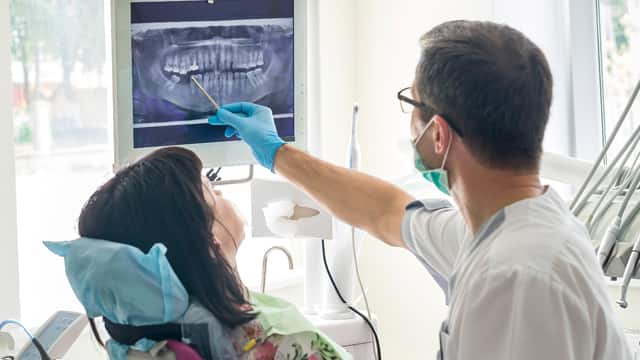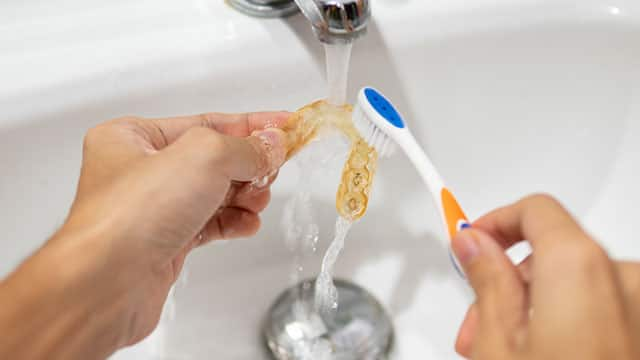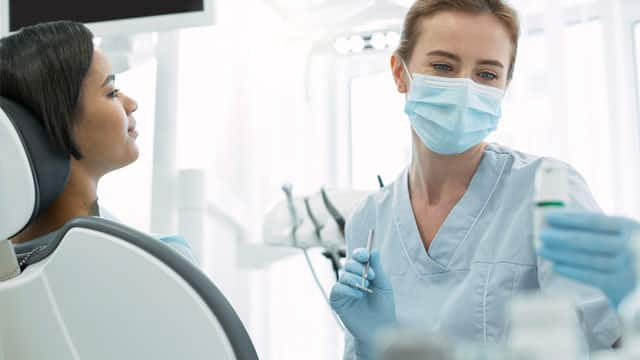What Happens When Your Lip Swells?
Lips swell when the blood vessels that supply them fill with blood. The structure of the lips include thin, delicate skin that covers the outside, and muscle that lies underneath, which is filled with blood vessels. The inner layer of the lips is called the oral mucosa, and it's part of the mucous membrane that lines the mouth. When blood rushes to the lips in response to trauma, allergic reaction, or infection, the additional blood makes the lips swell.
Swollen Lips and Injuries
Even minor trauma that doesn't break the skin can cause the lips to swell, like sports injuries. It's also easy to hurt your lips bumping into things or through other minor accidents. The swelling usually goes down without treatment, but sometimes swelling hides other injuries, like cuts and abrasions that can become infected or make chewing and speaking difficult.
Swollen Lips and Allergic Reactions
Pollen, medications, dyes, and certain trigger foods and drinks cause allergic reactions that include swollen lips. When the body experiences an allergic reaction, it produces histamine—a chemical that causes the blood vessels in the lips to swell. Other symptoms of an allergic reaction are red, itchy welts known as hives, swollen or tight throat, breathing difficulties, muscle pain, fever, rashes, or discolored patches on the feet, genitals, hands, or face.
What Can Cause a Swollen Lip and How to Treat it
Three things that could indicate a swollen lip:
1. Trauma directly to the mouth
Your gums, tongue, and lips have a lot of blood supply, and the skin on your lips is very thin. If something hits your mouth with a lot of force, for instance, a ball that's thrown from a distance, blood rushes to the area, causing a swollen appearance. Because of the high blood flow in the region, this area might bleed a lot.
No matter which one of your lips is swollen, you can suck on ice pops or ice cubes to reduce swelling. You can also apply a cold pack to the area for at least 10-15 minutes every 1-2 hours for at least 24 hours after the injury occurs. Make sure to visit to make an emergency appointment with your dentist to ensure the trauma has not impacted your teeth.
2. Allergy
An allergic reaction may cause swelling in your lips. A common allergic reaction is known as angioedema, affecting the deeper layers of your skin. Swelling and redness around your lips, cheeks, and eyes is a typical sign of angioedema. If you have a mild allergic reaction, you can treat it at home with an over-the-counter antihistamine. If you have a known allergy to a food or medication that causes angioedema, your swollen lip symptoms may be an early sign of an allergic or anaphylactic reaction. You must seek immediate medication attention if you feel your swelling increases or if you have trouble breathing.
3. Infection
Cheilitis is a condition involving the inflammation of the lips. It can be acute or chronic. Viral cheilitis is mainly caused by the herpes simplex virus, type 1. The primary herpes infection affects the lips in most cases, manifesting as a cluster of blisters surrounding the mouth area. A burning sensation typically accompanies it.
Herpes blisters usually heal by themselves in about one to two weeks, although over-the-counter topical anesthetics can also give some relief.
Rare Swollen Lip Causes
When swollen lips have no obvious cause, they might be a symptom of a rare condition or disease—hereditary angioedema, leukemia, and Hodgkin's disease are a few unusual causes.
When to See a Doctor for Swollen Lips
Swollen lips often return to normal without treatment, but it's essential to seek immediate medical attention if you experience more severe symptoms, like breathing difficulties or heavy bleeding. Other reasons to see a doctor include if the swelling continues for longer than a few days or if it's accompanied by pain or fever, which may mean your lips are infected.
In less severe cases, you can use home treatments to help the swelling go down. A mild allergic reaction that causes lip swelling is usually over within four days, especially if you use over-the-counter antihistamines. For minor cuts and abrasions inside the mouth, rinse with a peroxyl mouthwash which facilitates healing, alleviates discomfort, and provides a whole mouth clean.
Swollen lips are usually more inconvenient than serious but see a doctor immediately if you have other, more severe symptoms. An allergic reaction can turn life-threatening quickly, and serious swelling can also signify another harmful medical condition. In most cases, icing an injury and keeping the area clean may heal your lips in no time.
Oral Care Center articles are reviewed by an oral health medical professional. This information is for educational purposes only. This content is not intended to be a substitute for professional medical advice, diagnosis or treatment. Always seek the advice of your dentist, physician or other qualified healthcare provider.
ORAL HEALTH QUIZ
What's behind your smile?
Take our Oral Health assessment to get the most from your oral care routine
ORAL HEALTH QUIZ
What's behind your smile?
Take our Oral Health assessment to get the most from your oral care routine















